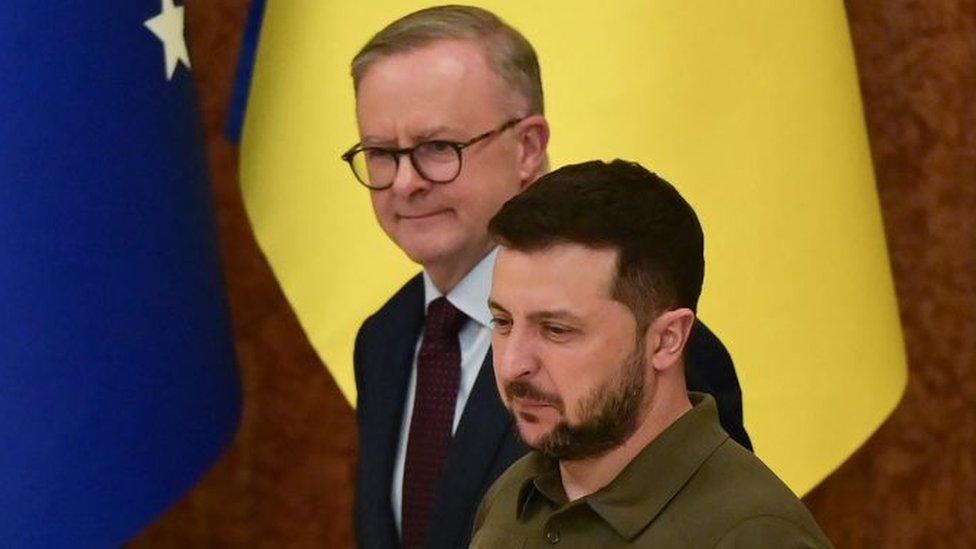Ukraine war: What is Putin's plan now Luhansk has fallen?
- Published
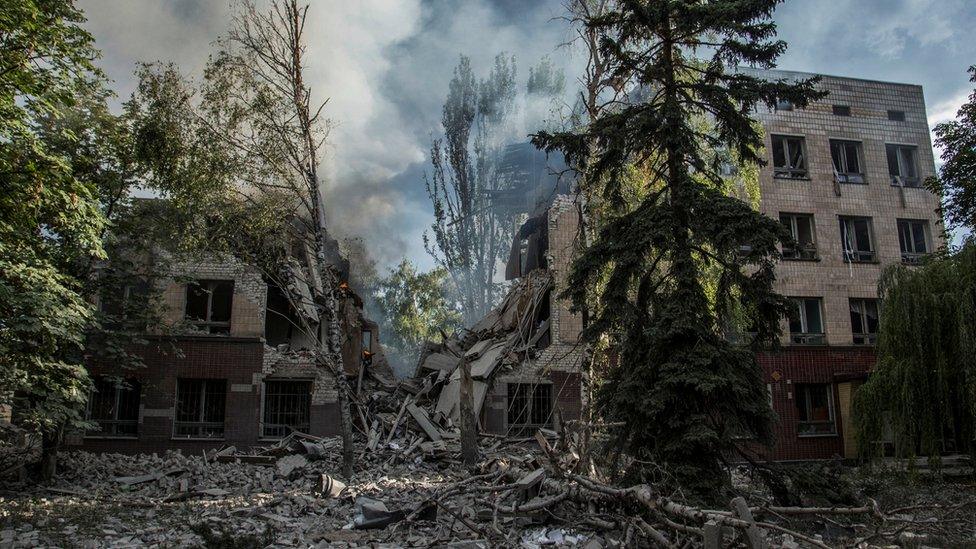
Smoke rises above a building in Lysychansk following a military strike last month
Once more, Russia advances. Once more, Ukraine pulls back.
The fierce and protracted battle that had been predicted for Lysychansk was avoided, according to the regional governor, by a strategic withdrawal.
Serhiy Haidai told me: "Russia currently has a huge advantage in artillery and ammunition. They would have simply destroyed it from a distance, so there was no point in staying."
That does seem to tally with Russian accounts of the capture of the city, seemingly moving in unopposed. Videos posted on social media on Sunday show Chechen fighters dancing in the central districts.
And well they might celebrate. The capture of Lysychansk means that Russia has essentially taken the entire Luhansk region, a key strategic aim of President Putin's invasion of Ukraine.
So, what does it mean both for the battle for the Donbas, but also the wider war?
Let's start from the Ukrainian perspective. For them, the crucial thing was to avoid an encirclement, as was seen in Mariupol. Although their defence of the southern port city did slow the Russian advance by many weeks, the end result was the killing or capture of thousands of the most capable soldiers in the Ukrainian army.
Ukraine wanted to avoid that at all costs.
In his nightly address, President Zelensky stated this explicitly. "We will rebuild the walls, we will regain the land, but people must be saved above all else," he told the nation.
Serhiy Haidai made exactly the same point, telling me: "Our troops have retreated to more fortified positions… We held the defence of Luhansk for five months. While that defence was holding, we were building new fortifications in the Donetsk region. Now the troops have gone there."
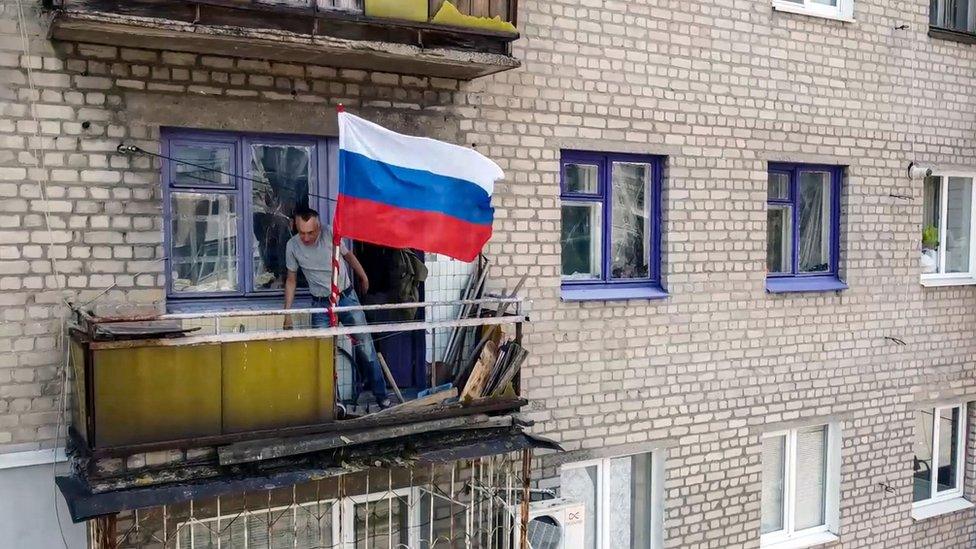
Moscow's defence ministry distributed this video showing a Russian flag being flown from a balcony in Lysychansk
Writing a few hours after the fall of Lysychansk, presidential adviser Oleksiy Arestovych even went as far as calling the defence of Lysychansk-Severodonetsk "a successful military operation".
Given that the Russian flag now flies above both cities, that logic may seem a little perverse, but his point is that they were playing a long game, buying valuable time.
To understand this logic, you need to understand the importance of Western weapons to Ukraine's resistance. In short, without Nato supplies they would be in even greater trouble than they currently are.
The longer they can delay the Russian advance, the more advanced rocket and artillery systems they can bring to the fight. US-provided HIMARS, already in action, are said to radically alter the balance of the conflict. More time means more supplies, which in turn tips the scales in their favour, especially given that sanctions mean Russia is struggling to replace its spent hardware and ammunition.
Now for the Russian perspective. Their stated aim is the capture, they say "liberation", of the Donbas. Taking Luhansk brings that one step closer.
Indeed, its significance was highlighted by President Putin today, when he made the commanders of the offensive "Heroes of Russia", the Federation's highest possible award.
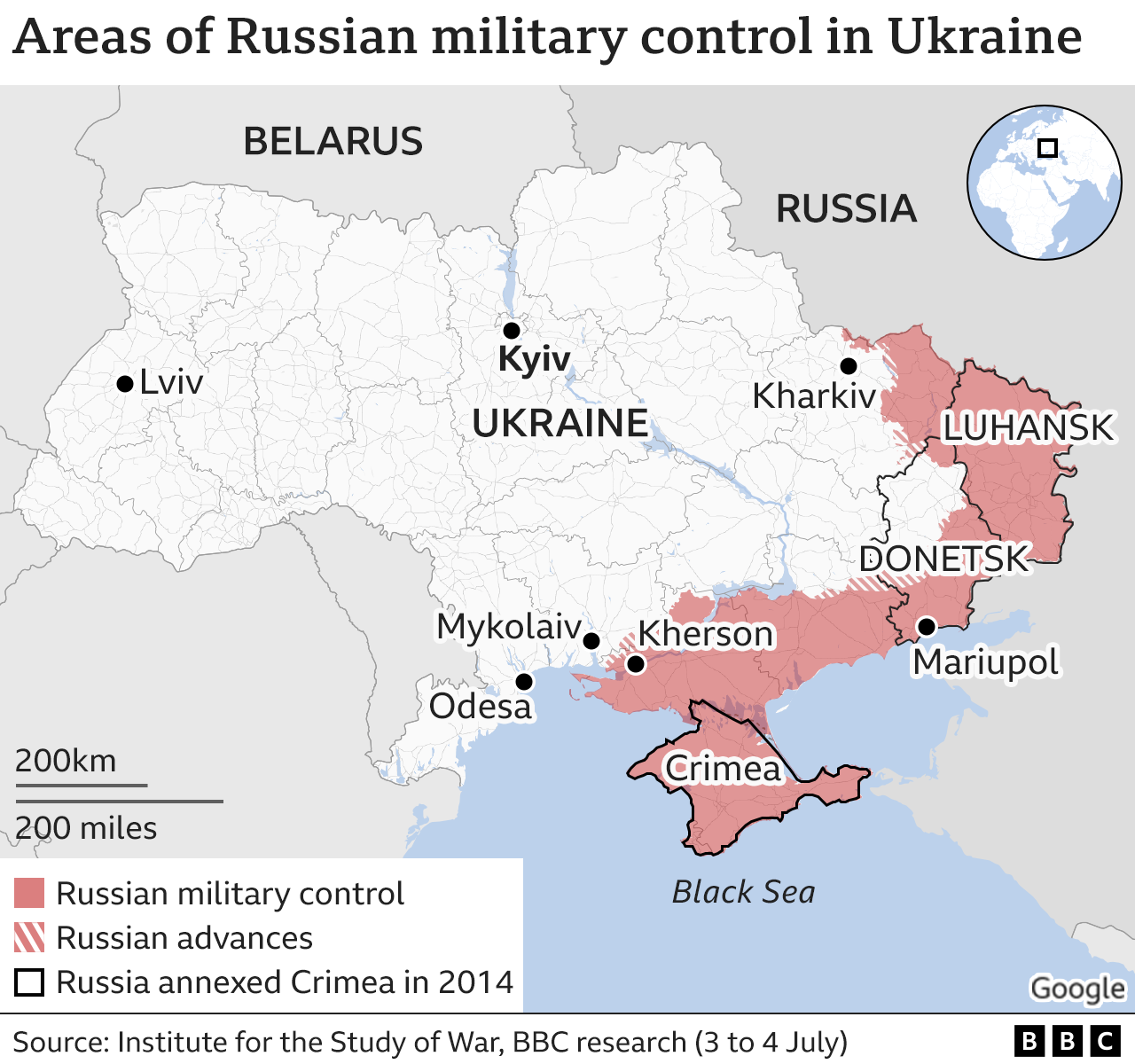
But what next? It seems almost certain that they will push on to try to take the rest of the Donbas, especially the cities of Sloviansk and Kramatorsk - both of which were shelled in recent days. Sloviansk is said to hold particular significance to the separatist movement, being the site of the first uprisings in 2014.
Beyond that the wider Russian strategy is not clear. Much will depend on the state of their forces if - when - they take the Donbas.
President Putin tacitly acknowledged this today, saying: "The units that took part in active hostilities and achieved success and victory in the Luhansk direction should certainly rest and increase their combat capabilities."
If they are still making rapid advances they could continue their push to take the entire south of Ukraine, up to and maybe even including the major city of Dnipro or beyond.

War in Ukraine: More coverage
ANALYSIS: Can we say how many people have died?
STOLEN GRAIN: Tracking where Russia takes Ukraine's grain
UKRAINE: Teaching from the trenches
READ MORE: Full coverage of the crisis, external

If, however, they are as exhausted as many analysts predict, and as Putin hinted, it is conceivable they will declare an end to the "special military operation", Russia's euphemistic phrase for this full scale war.
They might hope a unilateral ceasefire would take some steam out of the international support for Ukraine, with some, perhaps France and Germany, pushing for peace.
Ukraine would no doubt continue the fight, but without a steady stream of weaponry it could be that the frontline becomes a frozen conflict, much like it did between 2014 and 2022. That would suit Russia, keeping its neighbour in a state of turmoil and unrest.
For now, none of this is certain, with both sides claiming they have the upper hand. Indeed, it is worth noting that while Ukraine is on the back foot in the Donbas, they have had recent successes, most notably retaking Snake Island, where today the blue and yellow flag was once again raised.
The only thing of which we can be sure - this war will not be over any time soon, with the people of the Donetsk region set to be the next to suffer its consequences.
'Switch off the TV': Former Russian-state TV journalist's plea to Russia
Related topics
- Published3 July 2022
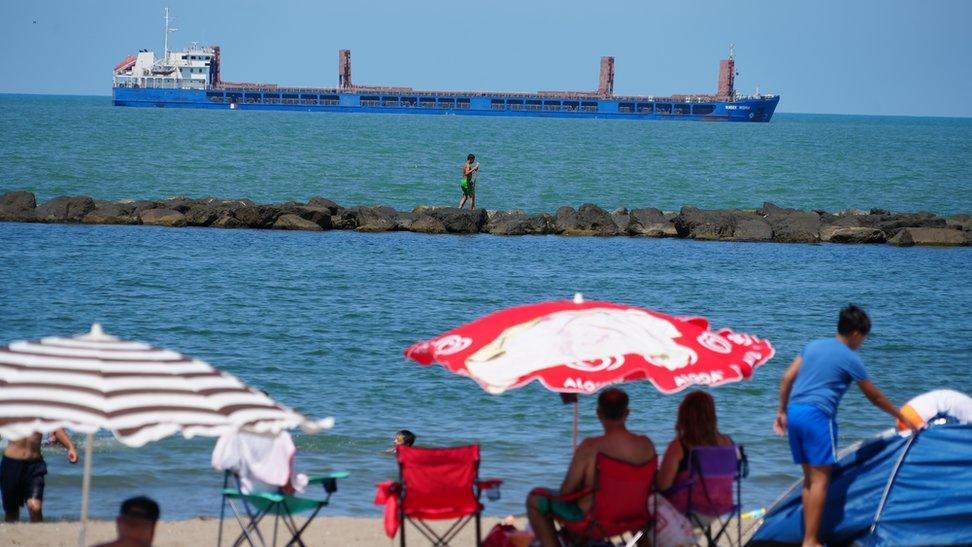
- Published4 July 2022
